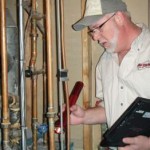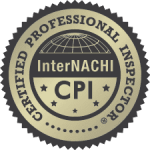Home inspections are an essential part of the home-buying process. Buying a home without one is the same as buying a car without taking it for a test drive.
Any good real estate agent will recommend you include a home inspection clause when you make an offer on a house. That usually means you’ll be paying for the inspection, so you need to know what you’re getting for your money. At this point you need to remember that it is all about you.
A Certified Licensed home inspector combs a property’s visible and accessible areas to identify any health and safety problems, positive or negative conditions of the property and any conditions that need further specialized attention.
An inspecti on includes structural elements such as the roof, foundation, walls, windows, doors, insulation, basement or crawlspace and attic. Electrical, plumbing, heating and cooling systems are also part of a home inspection. It can even include examination of appliances and should also report any evidence of pests or termites. Some testing such as Water Quality, Radon and Indoor Air Quality (Mold) are other services that the inspector may recommend. These are usually at an addition expense as Certified Lab testing is required.
on includes structural elements such as the roof, foundation, walls, windows, doors, insulation, basement or crawlspace and attic. Electrical, plumbing, heating and cooling systems are also part of a home inspection. It can even include examination of appliances and should also report any evidence of pests or termites. Some testing such as Water Quality, Radon and Indoor Air Quality (Mold) are other services that the inspector may recommend. These are usually at an addition expense as Certified Lab testing is required.
Once the inspection is complete, a home inspector provides a written, comprehensive report detailing any issues with the home.
Some important things to remember about home inspection reports are that no home is perfect. It is not uncommon for a report to include 50 or more issues. This is not “pass” or “fail.” The inspection gives you the information you need to decide whether or not to buy the home “as is” or negotiate with the seller to either fix (some of) the problems or reduce the price. This is not a warranty. The report identifies issues found the day of inspection and cannot predict problems that may arise a few months or a few days down the road.
Home inspection is another one of those jobs best left to professionals. Few of us have the expertise to identify electrical, plumbing and structural problems. Home Inspectors are trained to look for evidence of an existing or potential problem. Combine that with the emotional factors of buying a home, and it’s easy to see why potential buyers are not the ones who need to do the inspecting. It’s a good idea to accompany your home inspector so you can ask questions and see the good and not-so-good for yourself. Remember, the Home Inspector is helping with your inspection of your potential purchase. It also helps you in understanding the Inspection Report when you get it. Knowing that the inspection is one of the final steps in your stressful and emotional purchase, a good Home Inspector will get you the report within 24hrs.
Your real estate agent will probably be able to recommend a home inspector although it’s important to remember that you want a Home Inspector with your best interests in mind. I recommend that you choose your own by searching the internet for a local licensed Inspector or you can check out the International A ssociation of Certified Home Inspectors (InterNACHI) www.nachi.org for more information on selecting an inspector.
ssociation of Certified Home Inspectors (InterNACHI) www.nachi.org for more information on selecting an inspector.
Home inspection fees vary but the average single family home is usually under $500 for a standard home inspection. Considering how much an inspection can save you by avoiding potential disasters, its money well spent.